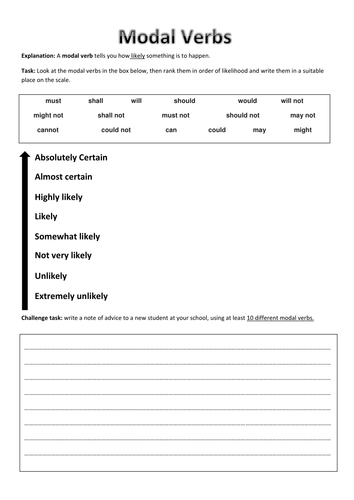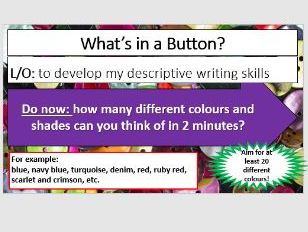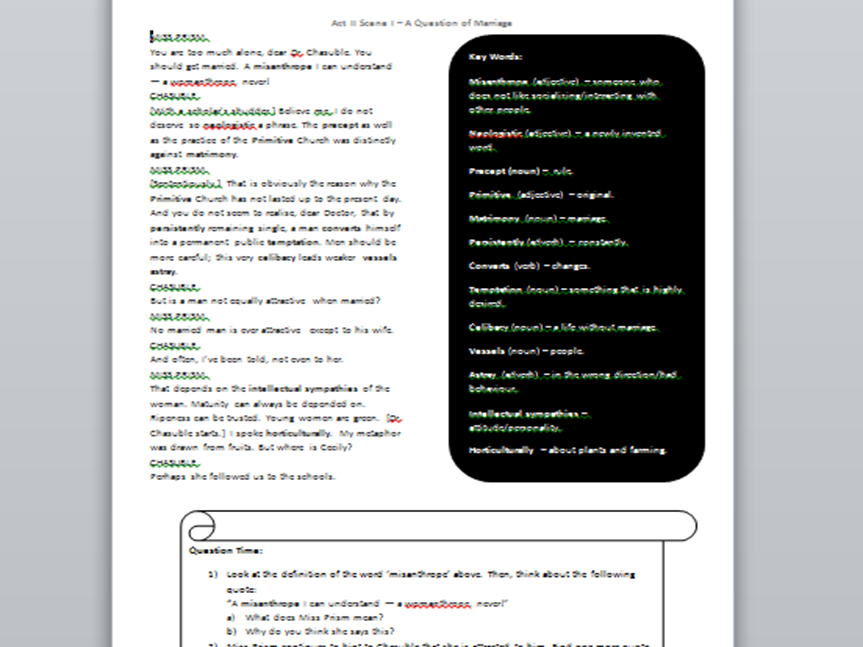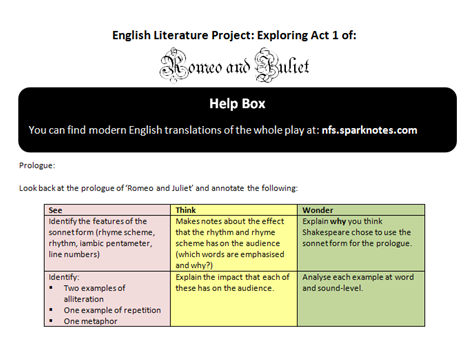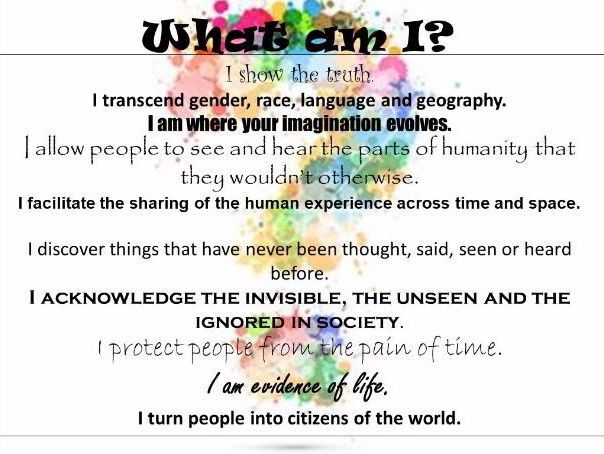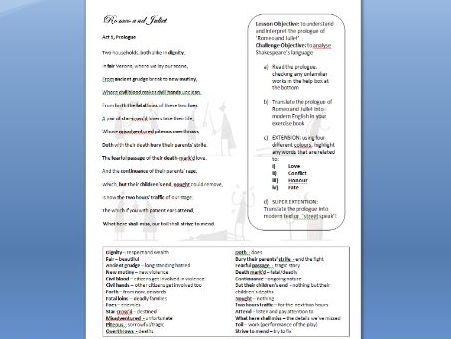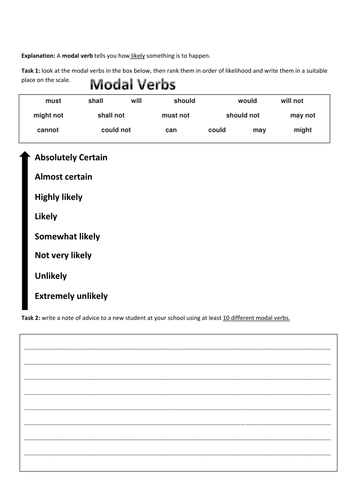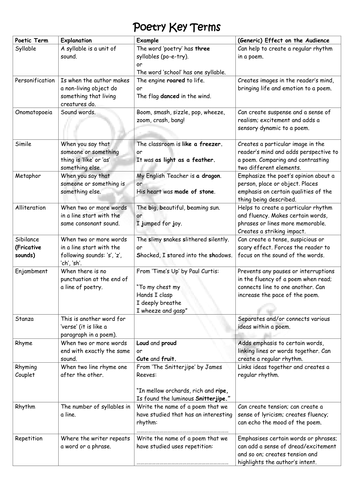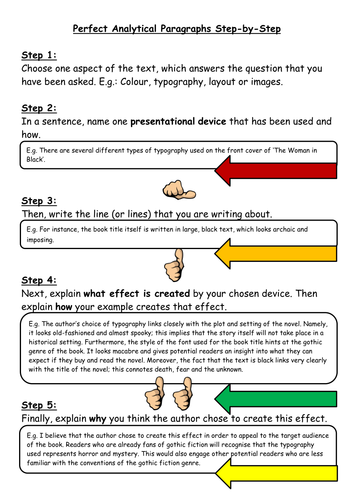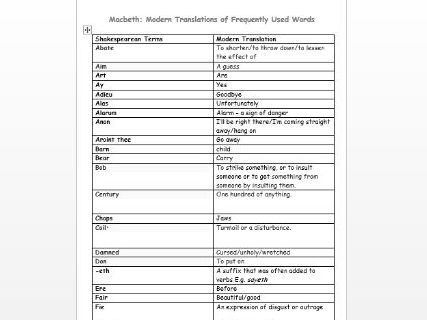44Uploads
57k+Views
4k+Downloads
English

Modal Verbs: An introduction and activities
A straightforward introduction to modal verbs on an editable, ready-to-use worksheet. Fantastic for EAL learners!

What's in a Button? A Descriptive Writing Mini Unit
A differentiated mini unit of 3+ lessons that guides students through describing a character, starting with a button from their clothing. Includes a colourful, easy-to-follow powerpoint presentation and an accompanying student worksheet. Key terms are provided for lower attainers as well as challenges to stretch more confident learners. TIP: provide learner with actual buttons - realia is fantastic for developing sensory description!

Cecily & 'Earnest' (Algernon) meet - 'The Importance of Being Earnest'
An excerpt from TIofBE which focuses on the first meeting between Cecily & 'Earnest' (Algernon) with a handy glossary of key terms for archaic/unfamiliar language.

Chasuble & Miss Prism - Act Two of The Importance of Being Earnest
Two excerpts from Act Two which focus on the relationship between Chasuble & Miss Prism in TIofBE. Includes key words and a series of questions to developing pupils' understanding of character, gender and the presentation of marriage.

The Importance of Being Earnest: Tea & Cake with Gewndolene & Cecily
A series of questions exploring the 'tea and cake' scene with Gwendolene and Cecily, with a focus on class and gender. Includes key words.

The Balcony Scene: Exploring Act 2 Scene 2 of Romeo and Juliet through Images
A set of six key images from Act 2 Scene 2 of the play, plus a table which guides pupils through analysing those images using the See-Think-Wonder technique. For differentiation: allocate see/think/wonder columns according to ability.

Differentiated 10 Page Booklet Exploring Five Excerpts from Act One of 'Romeo & Juliet'
A colourful, editable Word document which guides pupils through exploring excerpts from five key scenes from Act One of the play. Could be used as a project or series of lessons for individual or group work or separated into 5 different worksheets!
- Using the See, Think, Wonder technique, pupils can independently examine each scene in depth
- For differentiation: 'See' is the least challenging step; 'Think' is slightly more challenging and finally 'Wonder' is the most sophisticated process
- Includes an overview of the PEELER paragraph model (brilliant for scaffolding pupils in developing in-depth analysis skills)
- Includes GCSE examination style questions
- A great tool for encouraging independent learning

Exploring Love & Marriage in The Importance of Being Earnest
A full lesson exploring the presentation of love and marriage in acts one and two of TIofBE, based on the iGCSE English Literature specification. Created for a lesson observation, all supporting materials and lesson plan are included. Differentiated for grades C/D or grade 3/4.

Back to School - Independent Learning Project - Literature Matters
An independent learning project which asks 'big' questions to stimulate higher order thinking and encourages pupils to reconnect with literature and develop their discussion, debate and reasoning skills. Very thought-provoking and fun, even for your quietest classes! Includes editable PPT, editable pupil booklet and a differentiated reading list.

Transition Lesson - Analysing Similes & Metaphors in 'Firework' by Katy Perry
A fun, editable, ready-to-use lesson which guides pupils through exploring similes and metaphors in song lyrics. Differentiated lesson and challenge objectives.Proven success in numerous Transition Days across Years 5 to 8 in my current school.

Chapter Two of 'Skellig' by David Almond
A series of lessons (2-3 depending upon ability), exploring the use of adjectives in chapter two of ‘Skellig’ by David Almond. Includes differentiated lesson objectives and a ready to use worksheet.

Romeo and Juliet - Translating the Prologue
A handy, editable, ready-to-use worksheet which guides pupils through understanding the prologue of 'Romeo and Juliet'. Includes a glossary, extension task and super extension task!

Bloom's Taxonomy Verbs Posters
A colourful set of posters of Bloom's Taxonomy verbs - great for creating lesson objectives or challenging your pupils to write their own.

Modal Verbs
An editable worksheet which facilitates the learning of the relationship between modal verbs and probability.

Poetry Key Terms PLUS Effects
An editable, A3 sized worksheet to help pupils learn poetry key words with examples and explanations of the possible effects that they create for the reader. Fantastic for EAL and SEN pupils, as well as those who simply need a reminder not to write, "The poet's use of alliteration/rhyme/metaphor (delete as appropriate) catches the reader's eye."

A Step-by-Step Guide to Writing Analytical Paragraphs (Language or Media)
A colourful, editable step-by-step guide to writing analytical paragraphs suitable for higher attainers in Year 7 up to GCSE level. The model response is based upon analysing the use of typography on a book cover of the novel 'The Woman in Black' by Susan Hill.

Home Learning: 90 Sophisticated Adjectives - Characters in 'An Inspector Calls' PLUS Activities
This worksheet provides pupils with a word bank of 90 sophisticated adjectives describing the characters of the play. The activities guide them through evaluating each character and the way that they evolve from on act to the next. Ideal as a whole lesson or as homework. Editable and easy-to-follow (ideal for a cover lesson, home learning or online - just add dictionaries!).
Extension activity: ask pupils to pair up and argue for the best three adjectives to describe their allocated character at a specific point in the play. Then, each pair joins another pair to argue about the most suitable adjectives. A fantastic way of getting pupils to use new vocabulary as soon as possible.

Accessing Macbeth: A Glossary of Common Words and Phrases from the Play
A double sided, alphabetical A4 document with modern translations of the most frequently used old English/Shakespearean terms in ‘Macbeth’. Originally designed for GCSE pupils, but used successfully with KS3 classes too.

